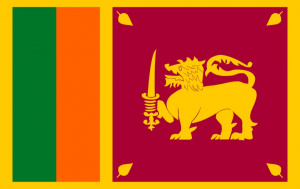Language/Sinhala/Vocabulary/Greetings-and-Introductions
As a Sinhala language teacher for over two decades, I am excited to introduce you to the first unit of our "Complete 0 to A1 Sinhala Course". In this lesson, we will learn the essential words and phrases used for greeting someone and introducing yourself in Sinhala.
Learning these basic greetings and introductions will not only help you communicate better with Sinhalese speakers but also impress them with your willingness to learn their language and culture. So let's dive into the vocabulary, cultural information, and interesting facts that will make your Sinhala greetings and introductions authentic and nuanced.
Greetings
Sinhalese society is known for its friendly and hospitable nature. Therefore, greeting someone correctly is essential to showing respect and building rapport. Here are some of the most common Sinhala greetings:
Hello and Hi
To say Hello or Hi in Sinhala, use the word "ආයුබෝවන්" (Ayubowan) or "හෙලෝ" (Hello). Ayubowan means "may you live long" and is a traditional Sri Lankan greeting, while Hello has been widely adopted by younger generations.
Good Morning, Afternoon and Evening
To say Good Morning in Sinhala, use the word "සුබ උදෑසනක්" (Suba Udesanak) or "සුබ දහම්" (Suba Dawasak). Suba Udesanak means "good sunrise," while Suba Dawasak means "good day."
To say Good Afternoon, use the word "සුබ දවලක්" (Suba Divalak) and to say Good Evening, use the word "සුබ සහලක්" (Suba Sandalak). Suba Divalak means "good midday," while Suba Sandalak means "good twilight."
How Are You?
To ask someone how they are doing, say "ඔබට කොහොමද?" (Obata Kohomada?). This phrase must be used after a greeting or Hello/Hi.
The typical response to this question would be "මාගේ ප්රසිද්ධ සේවය සුදුසුයි, ඔබට කොහොමද?" (Mage Prasadha Sewaya Sudusuwi, Obata Kohomada?) meaning "I am well, how are you?"
Introductions
Introducing yourself in Sinhala involves stating your name and greeting the other person. Here's how you can do it in Sinhala:
My name is...
To introduce yourself, you can say "මගේ නම..." (Mage Nama...) followed by your name. For example, "මගේ නම පීරියස්" (Mage Nama Piyarisu) would mean "My name is Piyarisu."
Nice to Meet You
To say that it's nice to meet someone, use the phrase "ඔබට ආයුබෝවන්" (Obata Ayubowan). You can combine this greeting with your introduction, as in "ඔබට ආයුබෝවන්, මගේ නම පීරියස්" (Obata Ayubowan, Mage Nama Piyarisu), meaning "Nice to meet you. My name is Piyarisu."
Where are you from?
To ask someone where they are from in Sinhala, say "ඔබ කොහොමද නගරයේ යෙදී ඇති?" (Oba Kohomada Nagaraye Yedi Athi?) or "ඔබ කොහොමද බලපත්රයේ යෙදී ඇති?" (Oba Kohomada Balapathrayedi Athi?) These phrases mean "Where are you from, city-wise" and "Where are you from, district-wise," respectively.
You are Welcome
To reply to someone thanking you in Sinhala, use the phrase "කිරීමට කියාපු හැකිය" (Kirimaata Kiyapu Hakiya), meaning "you are welcome."
Excuse me
When you need to get someone's attention or ask for permission to do something, use the phrase "කමුතුව" (Kamuthuwa) or "පියයුරු" (Piyayuru). Kamuthuwa means "excuse me," while Piyayuru means "please."
Vocabulary
Here is a table of basic Sinhala vocabulary for greetings and introductions:
| Sinhala | Pronunciation | English |
|---|---|---|
| හෙලෝ | Hello | Hello |
| ආයුබෝවන් | Ayubowan | Hello (Traditional) |
| සුබ උදෑසනක් | Suba Udesanak | Good Morning |
| සුබ දහම් | Suba Dawasak | Good Day |
| සුබ දවලක් | Suba Divalak | Good Afternoon |
| සුබ සහලක් | Suba Sandalak | Good Evening |
| ඔබට කොහොමද? | Obata Kohomada? | How are you? |
| ඔබ කොහොමද නගරයේ යෙදී ඇති? | Oba Kohomada Nagaraye Yedi Athi? | Where are you from(city-wise)? |
| ඔබ කොහොමද බලපත්රයේ යෙදී ඇති? | Oba Kohomada Balapathrayedi Athi? | Where are you from(district-wise)? |
| හරියටම නම්තෙක් | Hariyatama Namtehak | Nobody whom I can introduce you |
| ඔබට ආයුබෝවන් | Obata Ayubowan | Nice to meet you |
| මගේ නම | Mage Nama | My name is... |
| කමුතුව | Kamuthuwa | Excuse me |
| පියයුරු | Piyayuru | Please |
| කිරීමට කියාපු හැකිය | Kirimaata Kiyapu Hakiya | You are welcome |
Knowing these words and phrases and using them appropriately can make a huge difference in the first impression you make on Sinhalese speakers. I hope this lesson on Sinhala greetings and introductions has been valuable to you.
Stay tuned for the next unit where you'll learn to count from 1 to 100 and how to use numbers in everyday situations.
Related Lessons
- Speaking and Writing Production
- How to Say Hello and Greetings
- How to say Good Bye?
- Classroom
- Verbs
- Clothes
- Listening and Reading Comprehension
- Booking and Checking In
- Fruits


